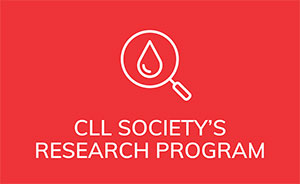About CLL Society’s Research Program
Over the past several years, it has become more challenging for scientists to secure adequate funding for academic and research-related work that is specifically focused on chronic lymphocytic leukemia and small lymphocytic lymphoma (CLL / SLL). This may be due in part to the disease being largely perceived as a solved problem. As a result of this common misconception, overall funding capacity has not grown to meet the ongoing need for CLL / SLL research.
In January of 2022, CLL Society formally launched the Research Program to support this underfunded area of science. CLL Society’s Research Program is one of the only nonprofit organizations in the United States that is dedicated exclusively to funding research for CLL and SLL.
To achieve CLL Society’s strategic vision, we recognized the importance of providing funding to support some of the brightest minds currently in the field, as well as attract the next generation of researchers who will advance the science.
Since launching the Research Program in 2022, CLL Society has already committed a total of $1,500,000 to CLL / SLL research! We hope that by providing researchers with substantive grants we can help to develop and support the efforts of scientists who are committed to solving the unmet needs of the disease.
While acknowledging the incredible amount of progress that has been made over the past decade for CLL / SLL, we recognize that there is much more work that remains.
We Believe the Four Most Critical Areas of Unmet Need in CLL / SLL Are:
- Disease progression after receiving both a BTK inhibitor and BCL-2 inhibitor (double refractory disease)
- Richter’s transformation
- Strengthening or reconstituting the impaired immune system
- Curative therapies
Here are CLL Society’s Research Program’s Overarching Objectives:
- Develop a better understanding of CLL / SLL genesis, progression, and transformation.
- Identify new treatment options, or improve upon existing treatment options.
- Elucidate the nature of and determine methods for reducing associated morbidity and mortality arising from immune dysfunction and other complications in CLL / SLL.
- Minimize inequities in overall survivorship, treatment options, and access to care by promoting greater diversity in research and forming a greater understanding of the presentation of CLL/ SLL in various demographic groups.
- Realize an overall improvement in outcomes for all of those living with CLL / SLL.


















